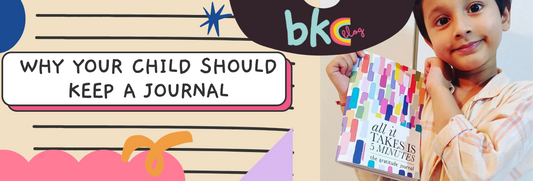As a parent, there can perhaps be no greater joy than seeing your child happy. And while, no doubt, parents do their best to assure and validate their children, research shows that they may be unknowingly doing harm by praising children the ‘wrong’ way! So, what’s the ‘right’ way? Read on to find out.

For many of us, hearing words of praise from our parents was not something that we experienced much in our childhood. Most praise was reserved only for our highest achievements. Culturally, showing overt signs of affection or showering compliments from parent to child has not been common practice. But thankfully, things are changing.
However, there is a chance that the pendulum might be swinging too far the other way. Child psychologists and researchers have identified a number of red flags in the way “praises” or “compliments”, when not given due thought, have a detrimental effect.
What Research Shows on the Effects of Praise
For anyone unsure about the value of praise, you can find assurance in the research that backs it. Child development experts say it can help with building confidence, and encouraging good behaviour.
Praise, when done meaningfully, is also a sign of acknowledgement – a way to tell your child that you are invested in what they are doing and appreciate their effort. Apart from feeling seen, your child would be encouraged to take pride and ownership of what they are doing.

Research also shows praise can encourage children to develop social behaviour that is directed towards helping others and thinking about another’s needs. It can help a child feel valued for their contributions, while also understanding that their contributions actually do make a difference in other people’s lives.
Even as adults, hearing praise, especially when we know when we have earned it, boosts our self-esteem and propels us to keep trying harder at whatever it is we are engaged with. But despite all the many positives, there are certain ways of praising children that might not be helpful at all.
How to Praise Your Child the Right Way!
Your child has finally figured out how to drink from a straw, or finished an entire meal without assistance. Our go-to response, most of the time, is “Good job!”. You would think it’s that easy, right? Turns out, while complimenting or praising your child may build their confidence, studies show that not doing it the right way has a negative impact in the long run.
1. Praise Effort Not Outcome

Time and again, child specialists have found that only lauding children in their moments of highest achievement leaves a deeply negative impact on their psyche. Your child may be left feeling they can only matter when they have exceeded expectations. This can greatly undermine their sense of self worth.
Don’t wait for your child’s outcome, instead appreciate their intention or effort while they are still engaged with the activity. Whether it be a test they are studying for, an art project they are working on, or a recital they are practising for, praising their effort and hard work will teach them resilience. After all, they may not always achieve the desired outcome in all of their endeavours in life, but if they understand the value of hard work they will be more determined to keep trying.
Example: “It takes so much patience to keep practising. You should be very proud of yourself for not giving up!”
2. Value Hard Work Not Talent

Natural talent whether in music, dance, or mathematics, has always been something society has deemed attractive and marvelled at. But praising someone’s natural abilities can do more harm than good. For instance, “You’re so smart!” is a praise that is commonly used for children when they excel at academics. But research shows that praising children for something they cannot control can teach them to rely on only their natural abilities.
It is important for a child to understand that no matter how talented and gifted they may be, talent needs to be nurtured with hard work. Praising your child for the hard work they put into something will teach them real-world lessons on the importance of resilience and perseverance. As adults they will be more likely to persist when their talent alone is not enough to help them reach their goals.
Example: “I saw all the extra reading you did. It’s added so much depth to your essay!” (Instead of, “You’re such a gifted writer!”)
3. Be Descriptive With Your Praise

To make sure your praise is truly beneficial for your child, experts recommend being as descriptive as possible. Statements like “You did great!” or “You’re a smart kid!” don’t actually communicate much. Replace it with something that actually talks about your child’s process.
Descriptive praise also shows your child that you’re invested in their lives, you care about their endeavours, and you pay attention to activities they care about. It will not only boost your child’s confidence but also improve their trust in your feedback.
Example: “Last week you needed help with putting on your shoes, but now you’re tying your own shoelaces! You have improved so much!”
4. Be Genuine When Praising

Don’t think children cannot detect ingenuity! Exaggerated praises like “Wow! Amazing!”, on the one hand, or easy off-hand ones like “Good job!” can start to feel quite hollow and meaningless after a point.
Younger children may find such generalised praises confusing. It’s more helpful when you explain what about their drawing is “amazing”, for instance, their creative use of colours. It can also feel discouraging and foster insecurity when they are not met with such superlative praises by other adults they interact with.
Older children, on the other hand, may lose trust in your judgement, or feel like you’re talking down to them. They may feel less motivated to share details of their lives with you. So, if you haven’t in fact had the time to pay attention to your child’s process, ask them about it. Ask them what they enjoyed, what was challenging, so that your praise is truly informed and meaningful to them.
Example: “It was so thoughtful of you to carry your grandma’s handbag and guide her up the stairs.”
5. Be Mindful of How You Deliver Your Praise

As per experts, how you communicate your praise is just as important as what you tell your child. Think about your tone when praising your child; keep it warm and bright. Make eye contact with your child so they understand that you are invested.
Your child’s age and personality also come into play. If you have a self-conscious child who doesn't like to draw attention to themselves, then share your praise in private and not at the dinner table when you have family over. If your child is entering their teens and starting to express a desire to be more independent, try not to make them feel coddled by your words.
Example: “Hey! I heard you practising on your guitar! Sounds like you’re challenging yourself with more difficult songs. That’s so exciting. How are you feeling about it?”
While there are some phrases that are best avoided entirely (especially if you use them as standalones without any effort to elaborate on them), there are times when you should also give yourself an out.
If you’ve returned home tired from work and your child runs up to you excited to show you something they have worked on, tell them you’d love to take a look at it and hear all about it at bedtime or dinnertime. Explain to them, “Mummy is so tired now. This is special so I want to save it for later when I’m feeling fresh!”
Remember to be kind to yourself. How you speak about yourself, or how you and your partner speak to each other are all cues that your child will pick up on. If you ever doubt the impact of your words, remind yourself that how you speak to your child now will inform how they speak and feel about themselves as an adult. The effort and thought you put into your words today will be treasured by your child for years to come.





